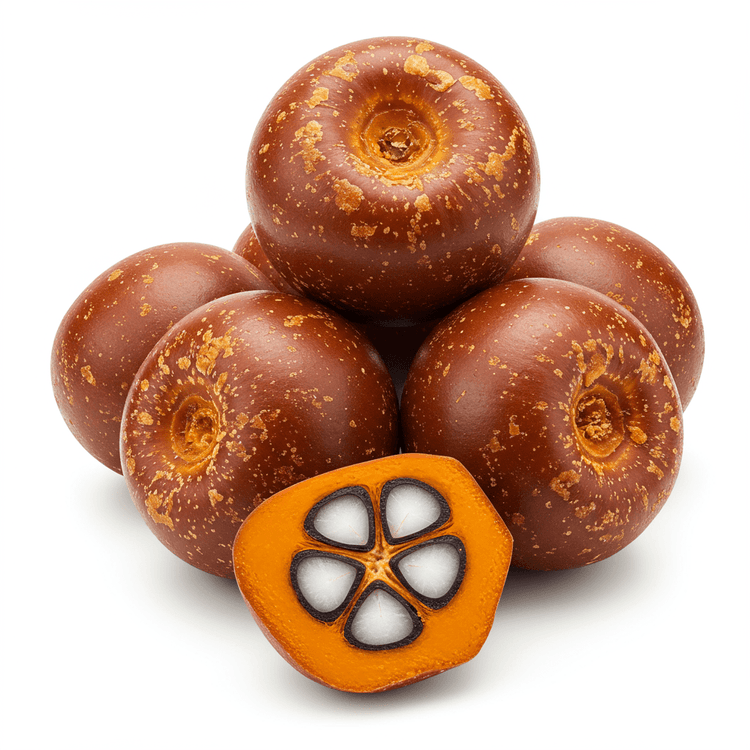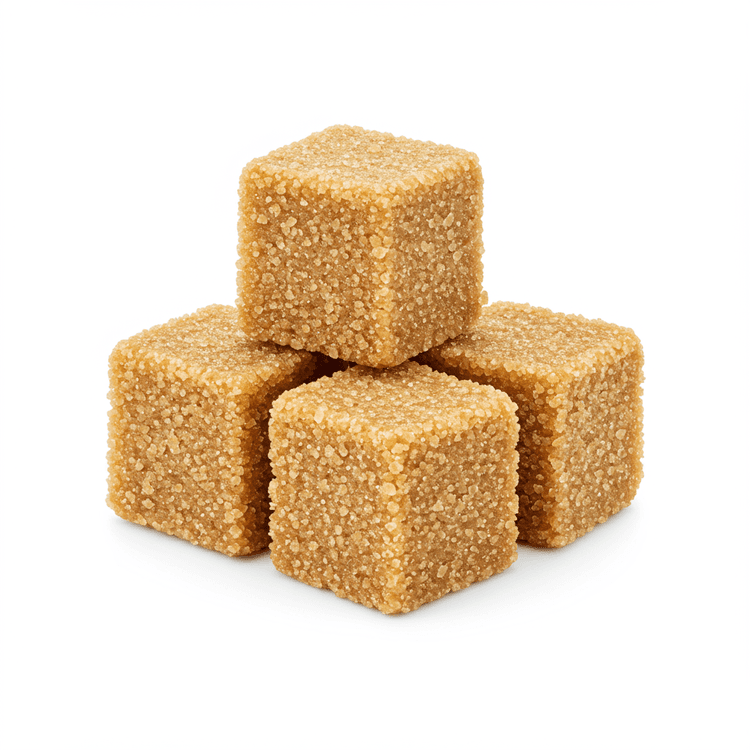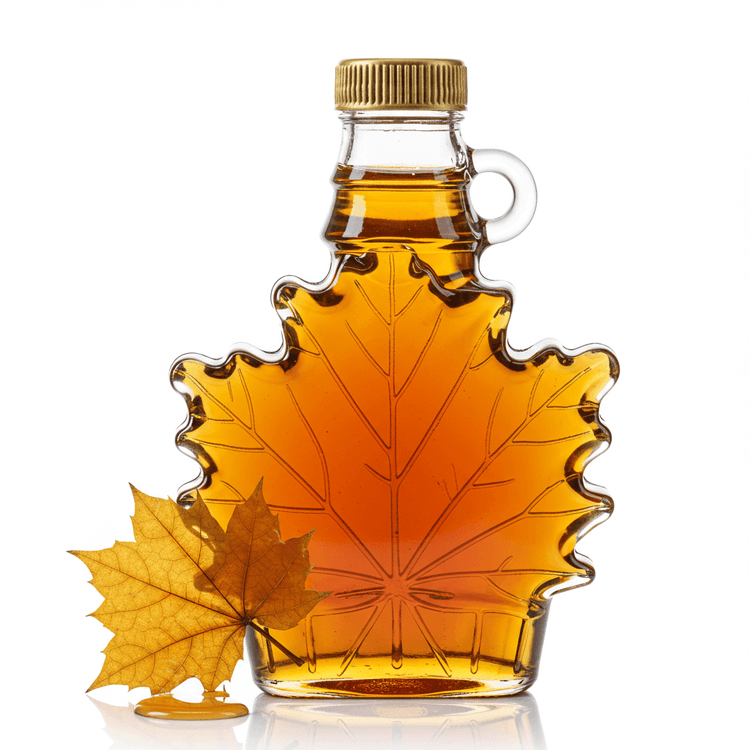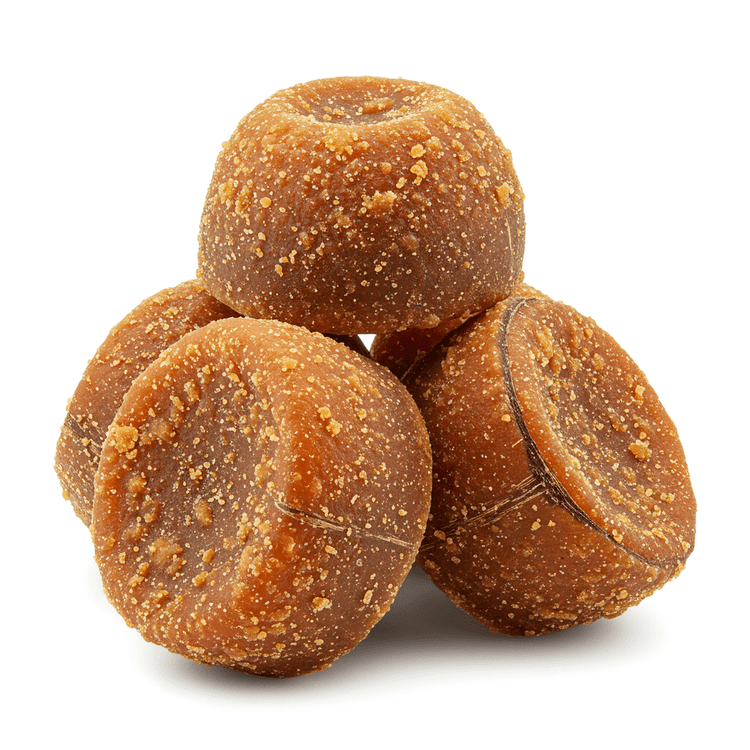
Palm Sugar
Palm sugar, also known as jaggery or gula melaka in some regions, is a natural sweetener derived from the sap of palm trees, typically coconut, date, or palmyra palms. It boasts a rich, caramel-like flavor with subtle smoky undertones, making it a popular alternative to refined sugar. Its texture can vary from granular to a more solid, hardened block, depending on the production method and moisture content. The color ranges from light golden brown to a darker, almost molasses-like hue. Many appreciate palm sugar for its lower glycemic index compared to processed white sugar, making it a favored choice for those seeking a healthier sweetener option in baking, desserts, and savory dishes alike.
Common Uses
- Palm sugar is frequently used as a key ingredient in Southeast Asian desserts and sweets, imparting a distinctive caramel flavor and sweetness to treats like puddings, cakes, and candies.
- It serves as a flavorful sweetener in beverages, adding a depth of flavor to coffee, tea, and other drinks, replacing refined sugar for a more nuanced taste.
- Many recipes utilize palm sugar in savory dishes, like curries, stir-fries, and sauces, adding a touch of sweetness and balancing spicy or salty flavors.
- Palm sugar can be melted down and drizzled over fresh fruit or desserts, creating a simple yet elegant topping with a unique caramelized flavor.
- Some chefs choose palm sugar when baking cookies and cakes, resulting in baked goods with a moist texture, a richer flavor profile, and a beautiful golden-brown color.
- You can dissolve palm sugar in warm water or coconut milk to create a syrup, perfect for drizzling over pancakes, waffles, or using as a base for homemade ice cream and other desserts.
Nutrition (per serving)
Nutrition (per serving)
Calories
387.0kcal (19.35%)
Protein
0.9g (1.8%)
Carbs
95.5g (34.73%)
Sugars
78.8g (100%)
Healthy Fat
0.1g
Unhealthy Fat
0.2g
% Daily Value based on a 2000 calorie diet
Nutrition (per serving)
Calories
387.0kcal (19.35%)
Protein
0.9g (1.8%)
Carbs
95.5g (34.73%)
Sugars
78.8g (100%)
Healthy Fat
0.1g
Unhealthy Fat
0.2g
% Daily Value based on a 2000 calorie diet
Health Benefits
- May have a lower glycemic index compared to refined sugar, potentially leading to more stable blood sugar levels.
- Contains trace amounts of vitamins and minerals like potassium, iron, and zinc.
- Unrefined nature retains some antioxidants, offering protection against cell damage.
- Can provide a source of energy due to its carbohydrate content.
- May contribute to improved digestion due to its natural enzymes.
Substitutes
Chefadora AI is here.
Experience smarter, stress-free cooking.
Storage Tips
Palm sugar should be stored in an airtight container in a cool, dry place, away from direct sunlight. This will prevent it from clumping and hardening. You can store it at room temperature if your kitchen is not overly humid or hot. In humid climates, it's best to refrigerate it to maintain its texture and prevent moisture absorption. For long-term storage, consider freezing palm sugar; break it into smaller pieces first for easier use later.
Marnirni-apinthi Building, Lot Fourteen,
North Terrace, Adelaide, South Australia, 5000
Australia



